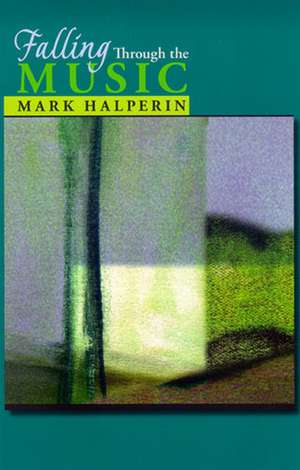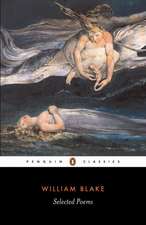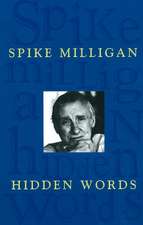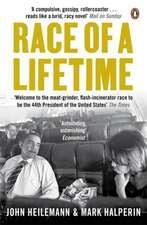Falling Through the Music
Autor Mark Halperinen Limba Engleză Paperback – 28 feb 2007
Preț: 138.59 lei
Nou
Puncte Express: 208
Preț estimativ în valută:
26.52€ • 27.59$ • 21.90£
26.52€ • 27.59$ • 21.90£
Carte tipărită la comandă
Livrare economică 15-29 aprilie
Preluare comenzi: 021 569.72.76
Specificații
ISBN-13: 9780268030810
ISBN-10: 0268030812
Pagini: 76
Dimensiuni: 147 x 231 x 9 mm
Greutate: 0.14 kg
Ediția:1
Editura: MR – University of Notre Dame Press
ISBN-10: 0268030812
Pagini: 76
Dimensiuni: 147 x 231 x 9 mm
Greutate: 0.14 kg
Ediția:1
Editura: MR – University of Notre Dame Press
Recenzii
“Falling Through the Music concerns itself with the mind’s accommodation of ‘gaps’ in time. Both personal and historical memory limit the past’s liabilities. . . . First-time readers of Halperin . . . will return to his work again and again . . . for the benefits of a disciplined imagination, a mature and rigorous skepticism, a breadth of experience that by making modest claims for itself, yields much.” —Notre Dame Review
Notă biografică
Mark Halperin taught at Central Washington University and has taught in Japan, Estonia, Russia, and Ukraine. His poetry books have been published by the University of Pittsburgh Press, Wesleyan University Press, and Copper Canyon Press. His poems and translations have appeared in a variety of journals. Halperin lives outside of Ellensburg, Washington, near the Yakima River.
Descriere
“The mood of Mark Halperin's new poems is autumnal and elegiac, yet the effect of his book is surprisingly bracing. This is due in no small measure to Halperin's persona—he is trustworthy, unflappable, and a wryly unjudgmental observer of human folly. And, as readers of his work have come to know, his command of technique, whether of received form or of the prose poem, is considerable. This makes both his tender poems of family history and his poems drawn from his travels in Russia acts of wonderment.” —David Wojahn
“The music here—form, rhyme, language and meaning, geometry and identity—is gorgeous: 'All I can't hear gives me trouble now, as the dead do, falling through the music' ('At the Concert'). Here are poems that adhere by sound—of family, memory, loss, and love—all captured by a brilliant poet who teaches as he goes. Lucky readers.” —Hilda Raz, author of Trans and Divine Honors
“Falling Through the Music is a book about high middle age when entropy, mortality, and overall decline cease to be rumor and feel more or less like the beginning of something that, for all its fear and sadness, promises to be fundamentally interesting. The poems range from the personal and familial across cultures and across other boundaries into the affirmations of art. This is the place where the artistic impulse does not save one from falling through music into death and nothingness, but somehow the companionship of art seems to be the best counterbalance to the terrors. Halperin deftly conjoins the mortal fears of advancing age with fears that one inherits through family and history, with the fear that there is really nothing stable or salvific in the world unless it is what we create. And therein resides the greater pleasure of this book—the sense that what is created is all we have and must be treasured for that. In short, this is a book of considerable emotional sophistication and impact.” —Frederick Marchant, Suffolk University, Boston
In Falling Through the Music, his fifth major book of poetry, Mark Halperin gives us consolation, guidance, and companionship while delivering an accomplished meditation on the first real glimpses of the limits on a life. Displaying an agility of formal invention—he moves easily from a Whitmanesque and witty litany to rhymed quatrains—Halperin deftly melds technique to theme. As in “Someone Pausing, he is able to place us in the mind of someone—any one of us—who has stood on an island in the street, fully attentive and present, knowing nothing stays, not even the observer.















